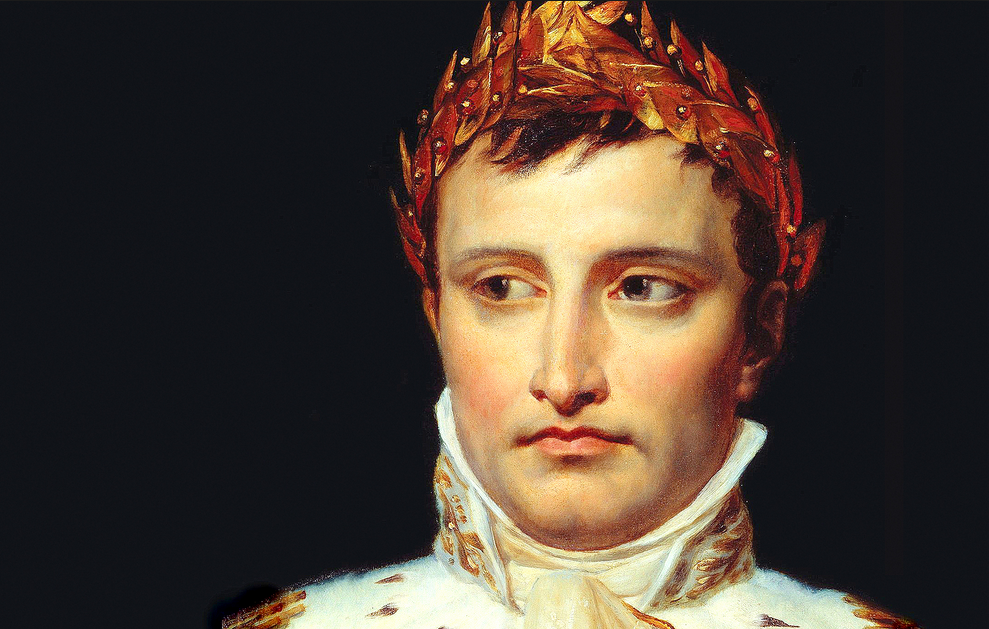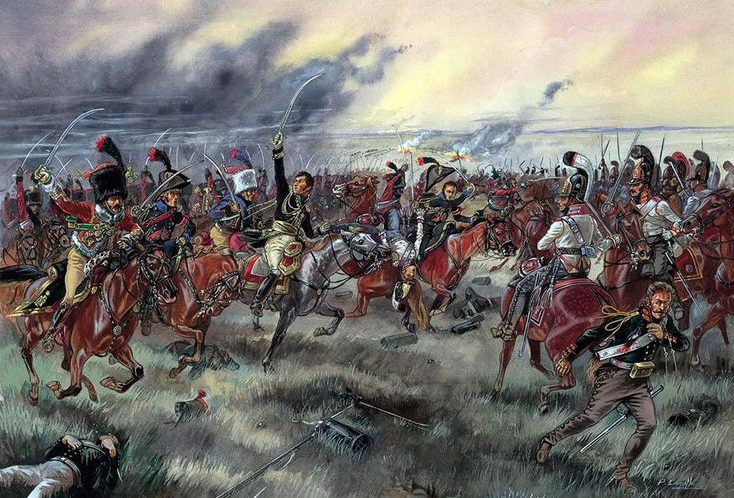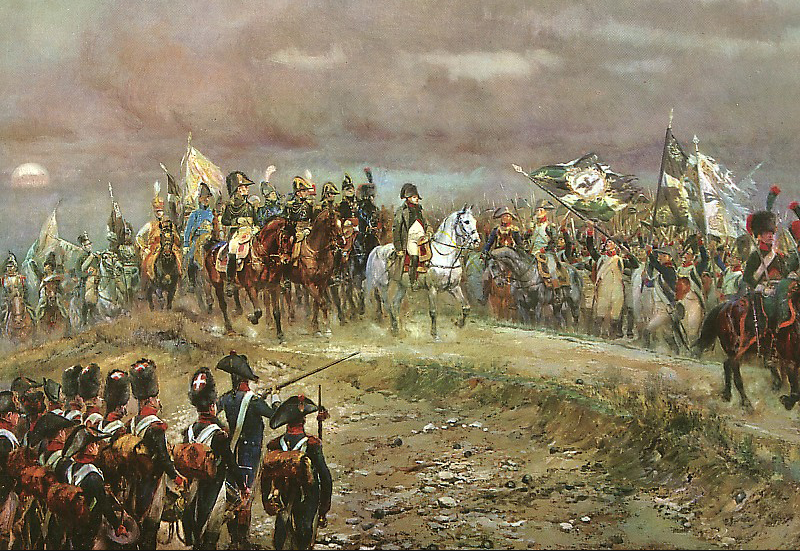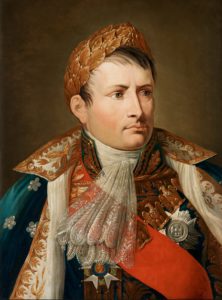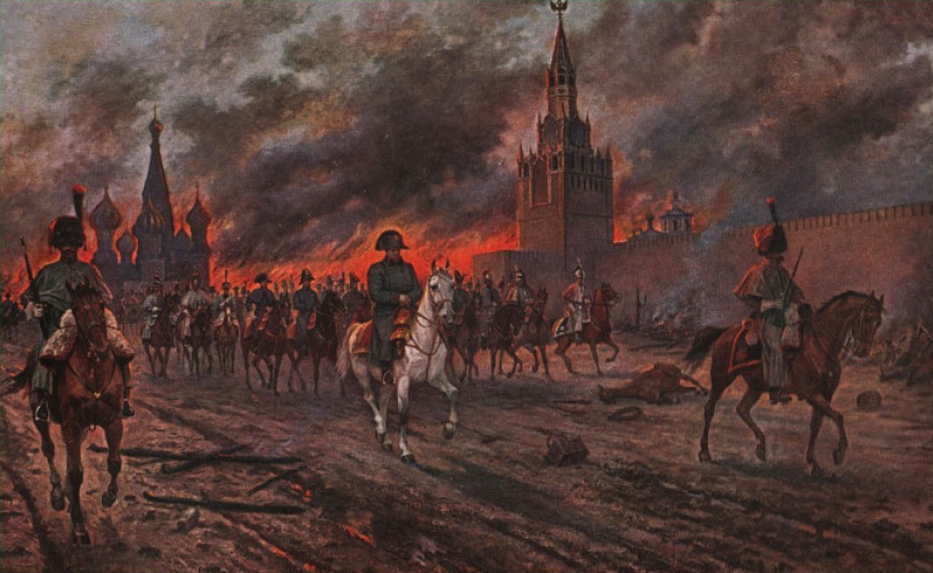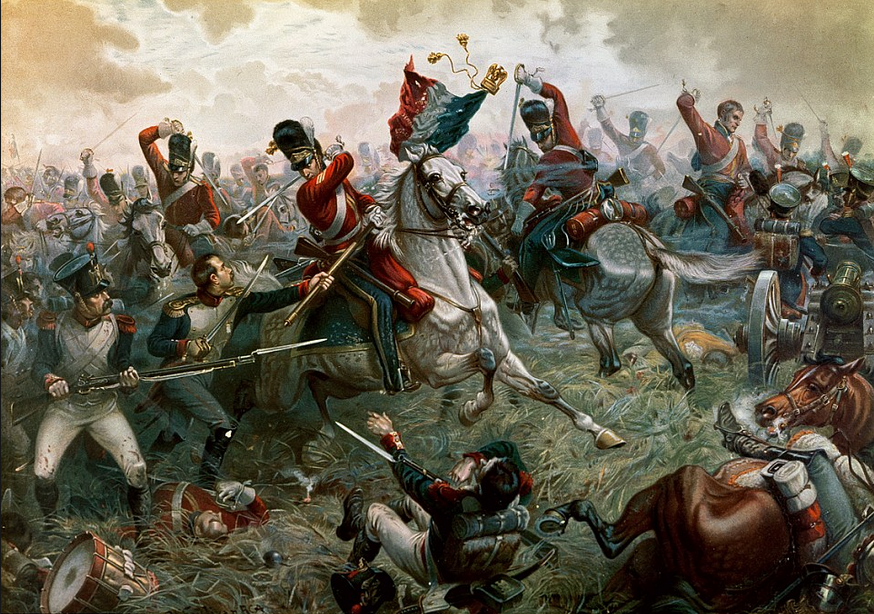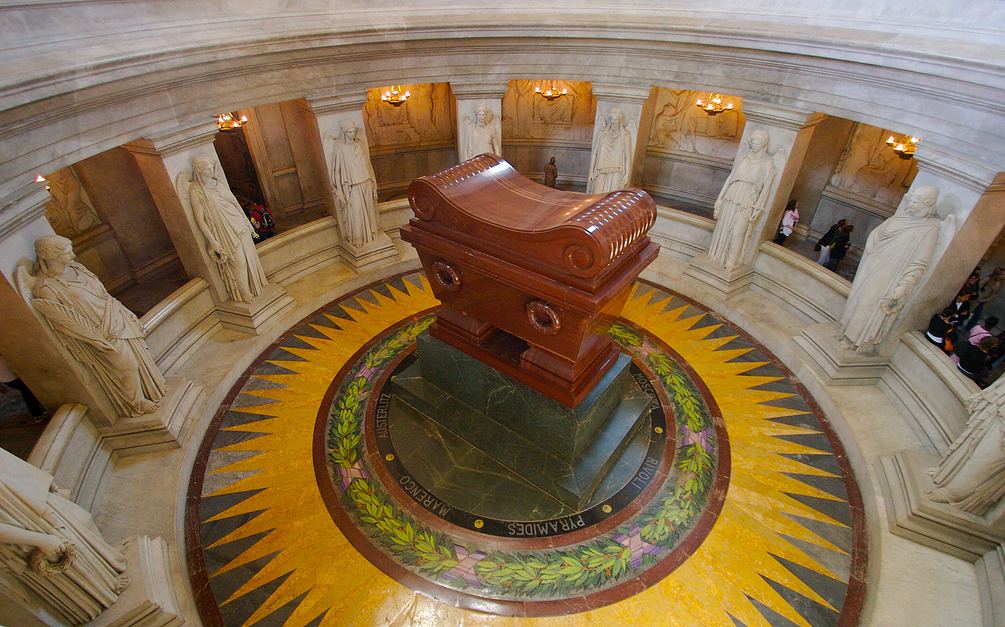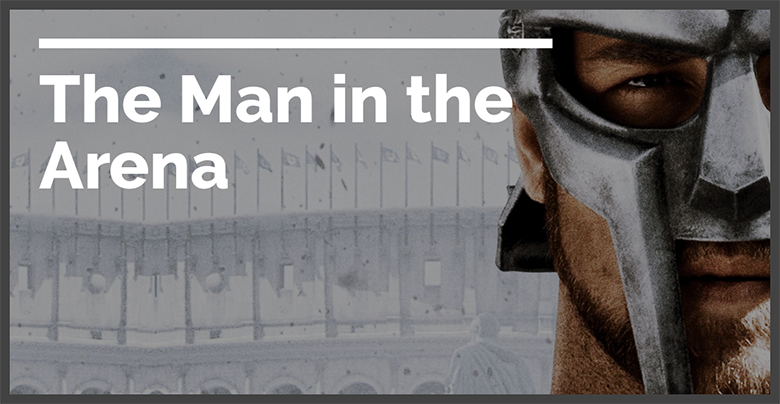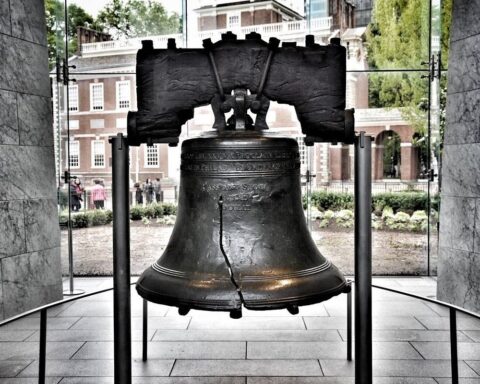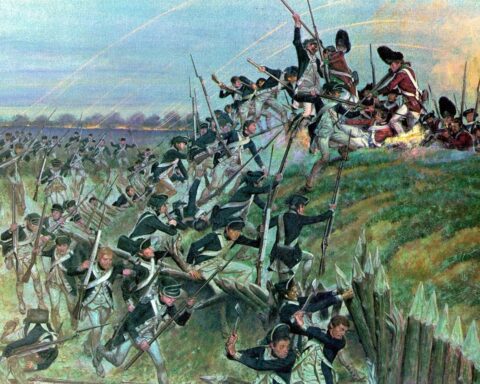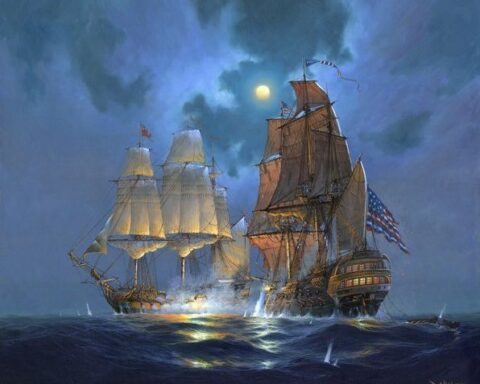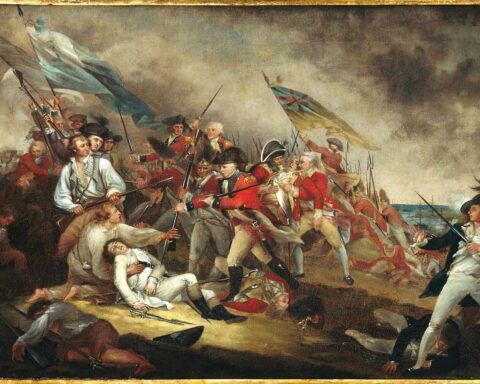Editor’s note: The following is excerpted from Beacon Lights of History, by John Lord (published 1902)
(Continued from Part 1)
Had Napoleon been contented with the power he then enjoyed as First Consul for life, and simply stood on the defensive, he could have made France invincible, and would have left a name comparatively reproachless. But we now see unmistakable evidence of boundless personal ambition, and a policy of unscrupulous aggrandizement. He assumes the imperial title,–greedy for the trappings as well as the reality of power; he openly founds a new dynasty of kings; he abolishes every trace of constitutional rule; he treads liberty under his feet, and mocks the very ideas by which he had inspired enthusiasm in his troops; his watchword is now not Liberty, but Glory; he centres in himself the interests of France; he surrounds himself, at the Tuileries, with the pomp and ceremonies of the ancient kings; and he even induces the Pope himself to crown him at Notre Dame. It was a proud day, December 2, 1804, when, surrounded by all that was brilliant and imposing in France, Napoleon proceeded in solemn procession to the ancient cathedral, where were assembled the magistrates, the bishops, and the titled dignitaries of the realm, and received, in his imperial robes, from the hands of the Pope, the consecrated sceptre and crown of empire, and heard from the lips of the supreme pontiff of Christendom those words which once greeted Charlemagne in the basilica of St. Peter when the Roman clergy proclaimed him Emperor of the West,–Vivat in oeternum semper Augustus. The venerable aisles and pillars and arches of the ancient cathedral resounded to the music of five hundred performers in a solemn Te Deum. The sixty prelates of France saluted the anointed soldier as their monarch, while the inspiring cry from the vast audience of Vive l’Empereur! announced Napoleon’s entrance into the circle of European sovereigns.
But this fresh usurpation, although confirmed by a vote of the French people, was the signal for renewed hostilities. A coalition of all governments unfriendly to France was formed. Military preparations assumed a magnitude never seen before in the history of Europe, which now speedily became one vast camp. Napoleon quit his capital to assume the conduct of armies. He had threatened England with invasion, which he knew was impossible, for England then had nearly one thousand ships of war, manned by one hundred and twenty thousand men. But when Napoleon heard of the victories of Nelson, he suddenly and rapidly marched to the Rhine, and precipitated one hundred and eighty thousand troops upon Austria, who was obliged to open her capital. Then, reinforced by Russia, Austria met the invader at Austerlitz with equal forces; but only to suffer crushing defeat. Pitt died of a broken heart when he heard of this decisive French victory, followed shortly after by the disastrous overthrow of the Prussians at Jena, and that, again, by the victory of Eylau over the Russians, which secured the peace of Tilsit, 1807,–making Napoleon supreme on the continent of Europe at the age of thirty-nine. It was deemed idle to resist further this “man of destiny,” who in twelve years, from the condition of an unemployed officer of artillery, without friends or family or influence, had subdued in turn all the monarchies of Europe, with the exception of England and Russia, and regulated at his pleasure the affairs of distant courts. To what an eminence had he climbed! Nothing in history or romance approaches the facts of his amazing career.
And even down to this time–to the peace of Tilsit–there are no grave charges against him which history will not extenuate, aside from the egotism of his character. He claims that he fought for French nationality, in danger from the united hostilities of Europe. Certainly his own glory was thus far identified with the glory of his country. He had rescued France by a series of victories more brilliant than had been achieved for centuries. He had won a fame second to that of no conqueror in the world’s history.
But these astonishing successes seem to have turned his head. He is dazzled by his own greatness, and intoxicated by the plaudits of his idolaters. He proudly and coldly says that “it is a proof of the weakness of the human understanding for any one to dream of resisting him.” He now aims at a universal military monarchy; he seeks to make the kings of the earth his vassals; he places the members of his family, whether worthy or unworthy, on ancient thrones; he would establish on the banks of the Seine that central authority which once emanated from Rome; he apes the imperial Caesars in the arrogance of his tone and the insolence of his demands; he looks upon Europe as belonging to himself; he becomes a tyrant of the race; he centres in the gratification of his passions the interests of humanity; he becomes the angry Nemesis of Europe, indifferent to the sufferings of mankind and the peace of the world.
After the peace of Tilsit his whole character seems to have changed, even in little things. No longer is he affable and courteous, but silent, reserved, and sullen. His temper becomes bad; his brow is usually clouded; his manners are brusque; his egotism is transcendent. “Your first duty,” said he to his brother Louis, when he made him king of Holland, “is to me; your second, to France.” He becomes intolerably haughty, even to the greatest personages. He insults the ladies of the court, and pinches their ears, so that they feel relieved when he has passed them by. He no longer flatters, but expects incense from everybody. In his bursts of anger he breaks china and throws his coat into the fire. He turns himself into a master of ceremonies; he cheats at cards; he persecutes literary men.
Napoleon’s career of crime is now consummated. He divorces Josephine,–the greatest mistake of his life. He invades Spain and Russia, against the expostulations of his wisest counsellors, showing that he has lost his head, that reason has toppled on her throne,–for he fancies himself more powerful than the forces of Nature. All these crimes are utterly inexcusable, except on the plea of madness. Such gigantic crimes, such a recklessness of life, such uncontrollable ambition, such a defiance of justice, such an abrogation of treaties, such a disregard of the interests of humanity, to say nothing of the welfare of France, prostituted, enslaved, down-trodden,–and all to nurse his diabolical egotism,–astonished and shocked the whole civilized world. These things more than balanced all the services he ever rendered, since they directly led to the exhaustion of his country. They were so atrocious that they cried aloud to Heaven for vengeance.
And Heaven heard the agonizing shrieks of misery which ascended from the smoking ruins of Moscow, from the bloody battlefield of Borodino, from the river Berezina, from the homes of the murdered soldiers, from the widows and orphans of more than a million of brave men who had died to advance his glory, from the dismal abodes of twenty-five millions more whom he had cheated out of their liberties and mocked with his ironical proclamations; yea, from the millions in Prussia, Austria, and England who had been taxed to the uttermost to defeat him, and had died martyrs to the cause of nationalities, or what we call the Balance of Power, which European statesmen have ever found it necessary to maintain at any cost, since on this balance hang the interests of feeble and defenceless nations. Ay, Heaven heard,–the God whom he ignored,–and sent a retribution as signal and as prompt and as awful as his victories had been overwhelming.
I need not describe Napoleon’s fall,–as clear a destiny as his rise; a lesson to all the future tyrants and conquerors of the world; a moral to be pondered as long as history shall be written. Hear, ye heavens! and give ear, O earth! to the voice of eternal justice, as it appealed to universal consciousness, and pronounced the doom of the greatest sinner of modern times,–to be defeated by the aroused and indignant nations, to lose his military prestige, to incur unexampled and bitter humiliation, to be repudiated by the country he had raised to such a pitch of greatness, to be dethroned, to be imprisoned at Elba, to be confined on the rock of St. Helena, to be at last forced to meditate, and to die with vultures at his heart,–a chained Prometheus, rebellious and defiant to the last, with a world exultant at his fall; a hopeless and impressive fall, since it broke for fifty years the charm of military glory, and showed that imperialism cannot be endured among nations craving for liberties and rights which are the birthright of our humanity.
Did Napoleon, then, live in vain? No great man lives in vain. He is ever, whether good or bad, the instrument of Divine Providence, Gustavus Adolphus was the instrument of God in giving religious liberty to Germany. William the Silent was His instrument in achieving the independence of Holland. Washington was His instrument in giving dignity and freedom to this American nation, this home of the oppressed, this glorious theatre for the expansion of unknown energies and the adoption of unknown experiments. Napoleon was His instrument in freeing France from external enemies, and for vindicating the substantial benefits of an honest but uncontrolled Revolution. He was His instrument in arousing Italy from the sleep of centuries, and taking the first step to secure a united nation and a constitutional government. He was His instrument in overthrowing despotism among the petty kings of Germany, and thus showing the necessity of a national unity,–at length realized by the genius of Bismarck. Even in his crimes Napoleon stands out on the sublime pages of history as the instrument of Providence, since his crimes were overruled in the hatred of despotism among his own subjects, and a still greater hatred of despotism as exercised by those kings who finally subdued him, and who vainly attempted to turn back the progress of liberal sentiments by their representatives at the Congress of Vienna.
The fall of Napoleon taught some awful and impressive lessons to humanity, which would have been unlearned had he continued to be successful to the end. It taught the utter vanity of military glory; that peace with neighbors is the greatest of national blessings, and war the greatest of evils; that no successes on the battlefield can compensate for the miseries of an unjust and unnecessary war; and that avenging justice will sooner or later overtake the wickedness of a heartless egotism. It taught the folly of worshipping mere outward strength, disconnected from goodness; and, finally, it taught that God will protect defenceless nations, and even guilty nations, when they shall have expiated their crimes and follies, and prove Himself the kind Father of all His children, even amid chastisements, gradually leading them, against their will, to that blessed condition when swords shall be beaten into ploughshares, and nations shall learn war no more.
What remains to-day of those grand Napoleonic ideas which intoxicated France for twenty years, and which, revived by Louis Napoleon, led to a brief glory and an infamous fall, and the humiliation and impoverishment of the most powerful state of Europe? They are synonymous with imperialism, personal government, the absolute reign of a single man, without constitutional checks,–a return to Caesarism, to the unenlightened and selfish despotism of Pagan Rome. And hence they are now repudiated by France herself,–as well as by England and America,–as false, as selfish, as fatal to all true national progress, as opposed to every sentiment which gives dignity to struggling States, as irreconcilably hostile to the civilization which binds nations together, and which slowly would establish liberty, and peace, and industry, and equal privileges, and law, and education, and material prosperity, upon this fallen world.

